The Monolithic Transit is cast into a wall or floor opening. The opening can have any shape — the transit fills it during the casting process and hardens in place. A special intumescent material is used for formwork during casting. The Monolithic Transit is resistant to solutions of liquid aggressive media (acids, alkalis, and salts), and is also waterproof — it protects against the penetration of fresh or seawater under pressure up to 5.5 atm. The transit can be used on sea and river vessels, in railway rolling stock, including locomotives and special-purpose cars.
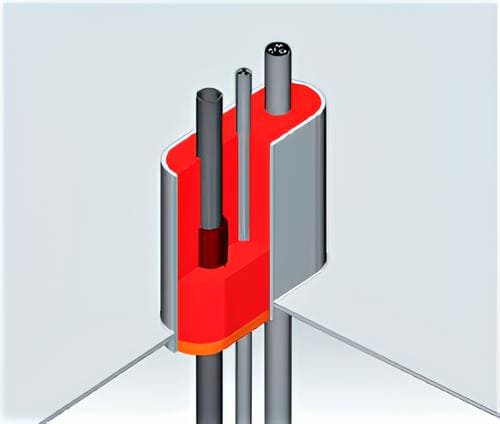
The fire resistance rating of the penetration according to GOST R 53310-2009 depends on the sealing thickness:
| Sealing thickness, mm | 50 | 70 | 100 | 150 | 200 | 250 | 300 | 400 | |
| Fire resistance rating IET according to GOST R 53310-2009, min | GERDA-PB-FR block-type penetration | 15 | 15 | 30 | 45 | 60 | 60 | 120 | 150 |
| GERDA-PM-FR monolithic penetration | 30 | 45 | 60 | 90 | 120 | 150 | 180 | 240 | |
the fire-resistant cable transit GERDA-PB-FR or GERDA-PM-FR performs the following functions:
To confirm the fire resistance rating of the penetrations, tests were conducted at an accredited testing center in accordance with GOST R 53310-2009. The image below shows a fire-resistant penetration with installed cables — from the outside (a) and the inside (b) of the fire chamber of the test furnace. Note that inside the fire chamber (b), the penetration expanded in size, resulting in increased thermal insulation and the formation of a reliable barrier against the penetration of flame and combustion products.
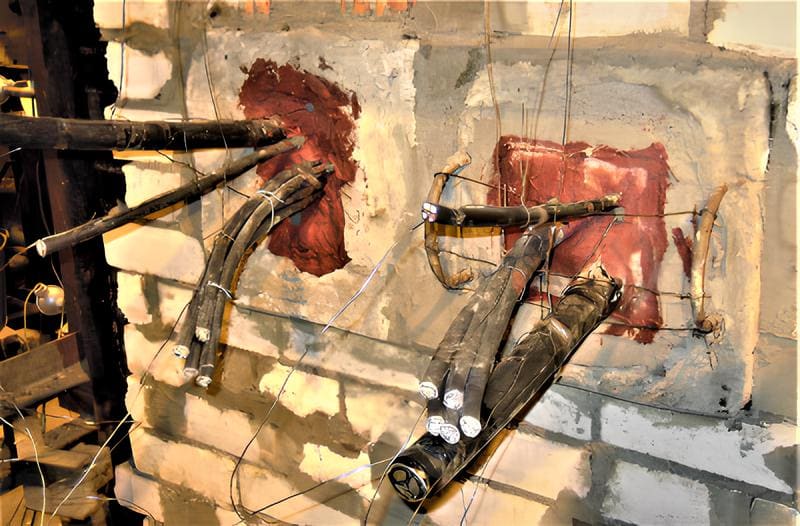
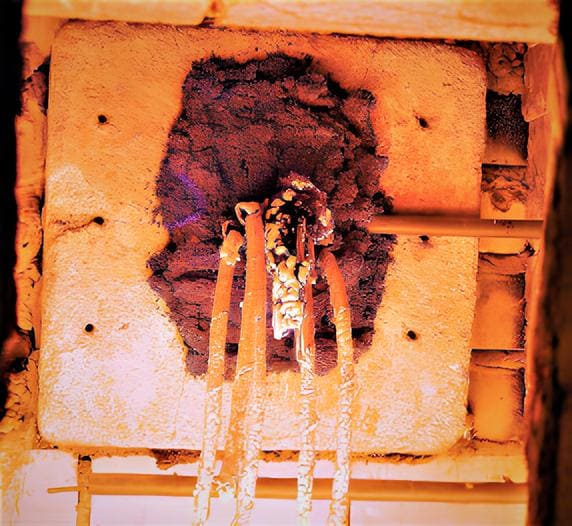
The GERDA-PM-FR transit consists of the following components:
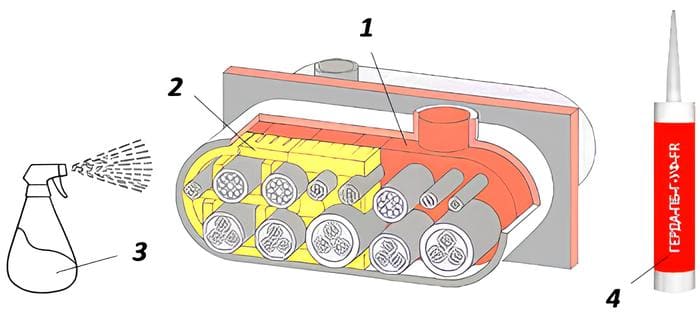
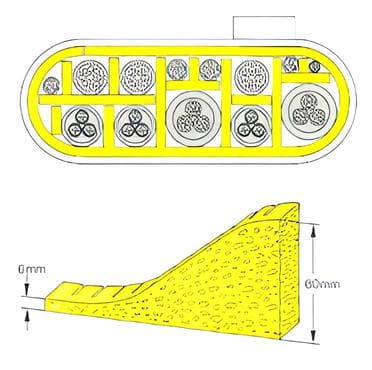
The quantity of GERDA-PM-FR powder compound (considering 30% of the formwork frame volume is occupied by cables and pipes) is calculated using the following formula:
where L, W, H are the dimensions (length, width, height) of the formwork frame in centimeters
Quantity of GERDA-PM-NM intumescent modules:
1 GERDA-PM-NM module = 1 kg of GERDA-PM-FR powder compound
Quantity of GERDA-PM-PZh impregnating liquid:
1 kg of GERDA-PM-PZh liquid = 5 GERDA-PM-NM modules
0 шт.
цена за шт. - 0 ₽
Error: Contact form not found.
Error: Contact form not found.